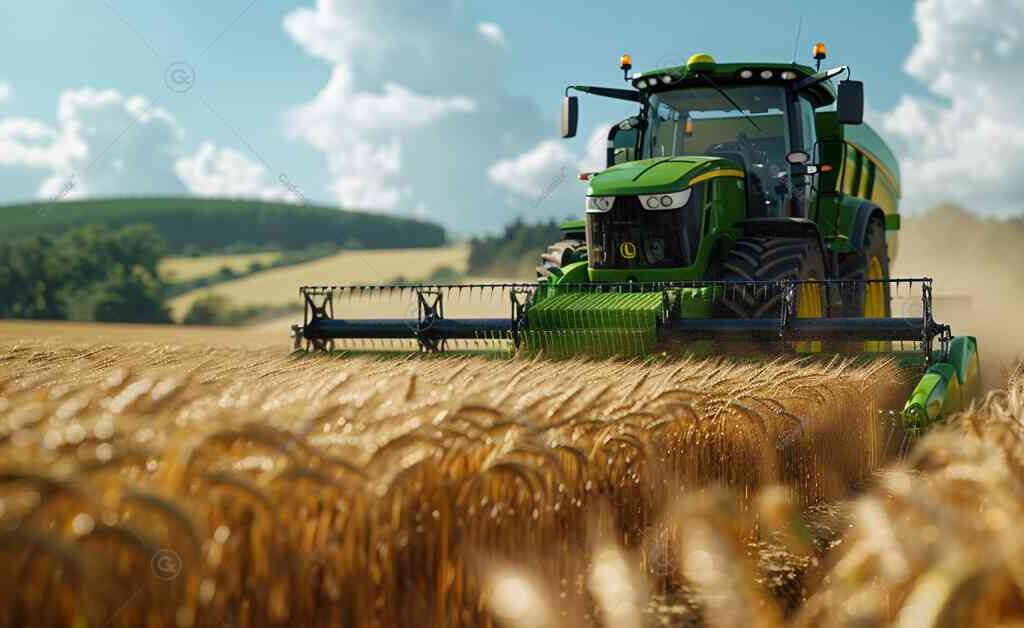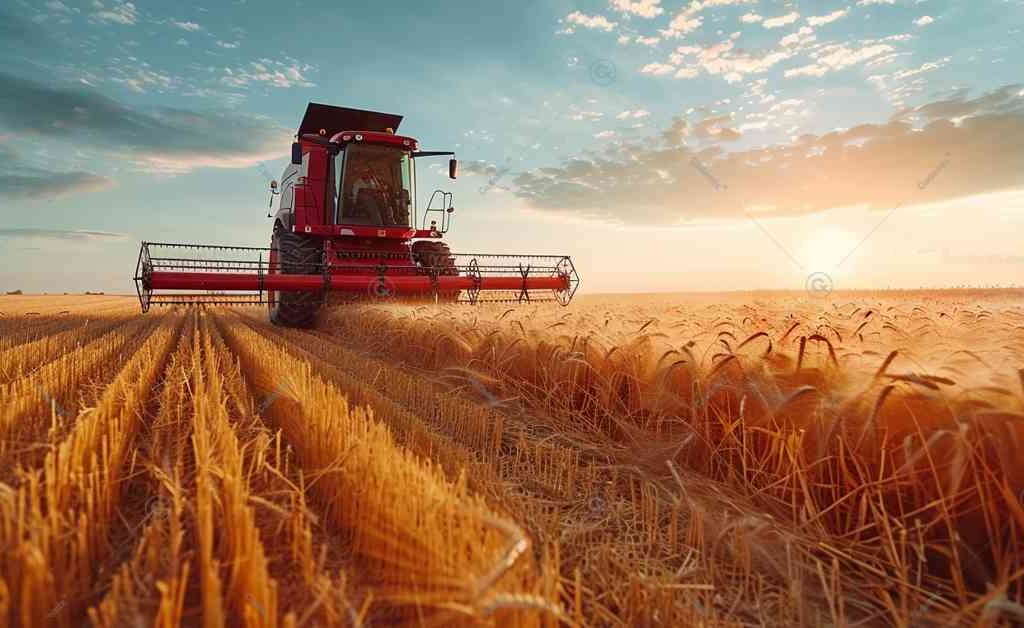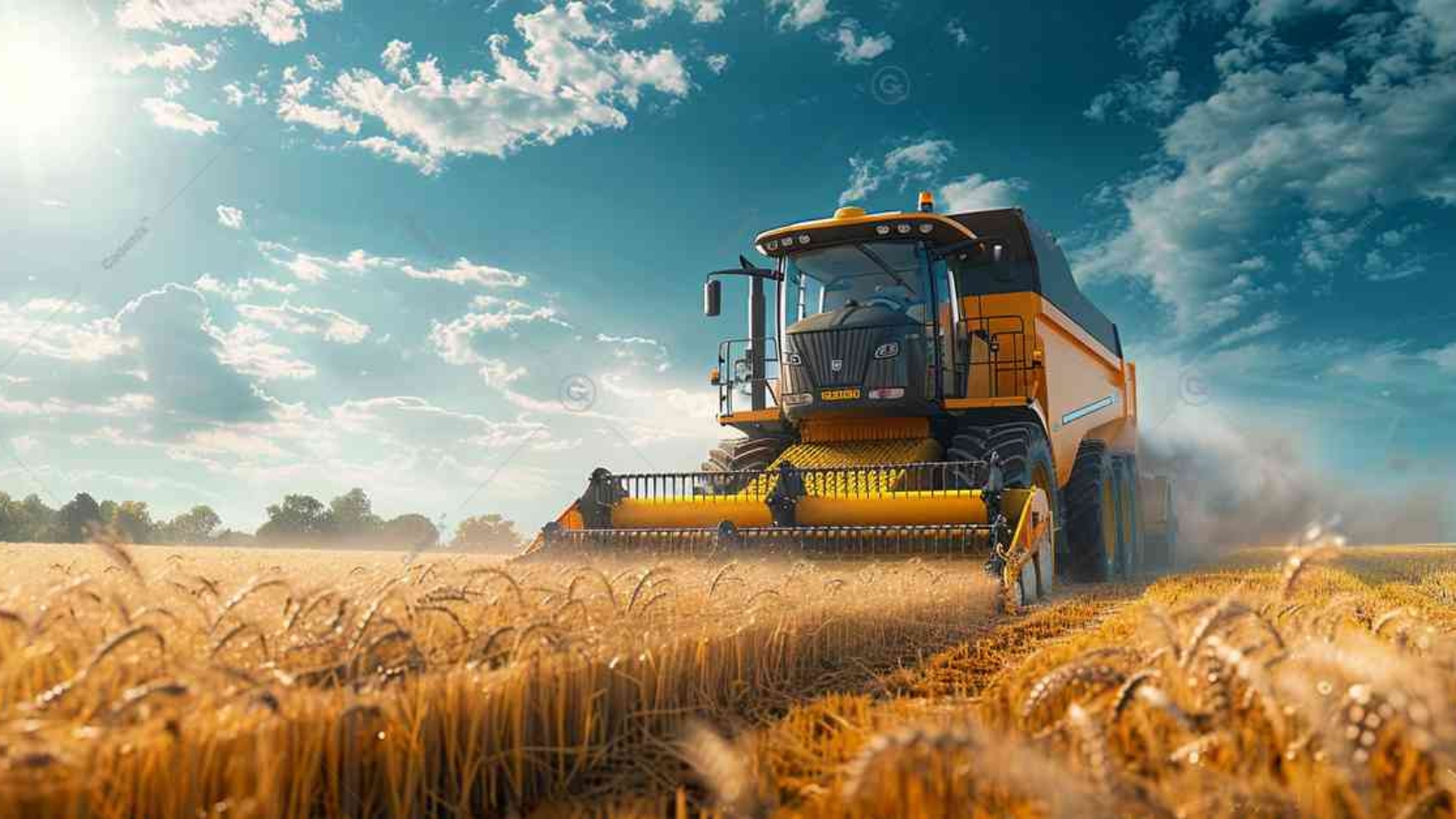Precision farming is an innovative approach to agriculture that utilizes advanced technology to improve crop yields, enhance resource efficiency, and promote sustainable farming practices. This article explores the diverse facets of precision farming, emphasizing its potential to revolutionize traditional agricultural methods through data-driven insights, cutting-edge machinery, and smart software solutions.
Cademix Instute of Technology-Agriculture Editorial Board
Keywords: precision farming, sustainable agriculture, smart farming, agricultural technology, resource optimization, precision agriculture

Understanding Precision Farming
Precision farming, also known as precision agriculture, involves using technology to monitor and manage agricultural processes with high accuracy. This method relies on data collection and analysis to guide decisions on planting, fertilizing, watering, and harvesting crops. By doing so, farmers can optimize their operations, reduce waste, and improve the overall health of their fields.
This approach is increasingly crucial as the agricultural industry faces challenges such as climate change, soil degradation, and the need for increased food production to meet a growing global population. Precision farming offers a viable solution to these issues by promoting efficient and sustainable farming practices that can be adapted to different environmental conditions.
We also suggest you to have a look on this article entitled; Navigating New Technology in Agriculture: Insights from the Hype Cycle and Future Trends
Core Technologies in Precision Farming
Satellite and Drone Technology
Satellite Imaging: Satellite technology provides large-scale monitoring of agricultural fields, offering data on crop health, soil conditions, and weather patterns. This information helps farmers make informed decisions about crop management and resource allocation.
Drones: Equipped with high-resolution cameras and sensors, drones can capture detailed images of fields. These images are used to detect issues such as pest infestations, water stress, and nutrient deficiencies, allowing for timely interventions.
By integrating satellite and drone data, farmers can gain a comprehensive view of their fields, leading to more precise and effective management practices.
Soil and Crop Sensors
Soil Sensors: These devices measure various soil parameters, including moisture levels, temperature, and nutrient content. Real-time data from soil sensors helps farmers optimize irrigation and fertilization schedules, ensuring that crops receive the necessary resources for optimal growth.
Crop Sensors: Placed directly on plants, these sensors monitor factors such as growth rate, leaf moisture, and chlorophyll levels. This data helps in identifying potential issues early and allows for targeted treatments to improve crop health.
For read about the benefits of soil sensors, visit AgFunder Network Partners’ insights on soil sensor technology.
Precision Equipment
Variable Rate Technology (VRT): VRT allows for the precise application of inputs like seeds, fertilizers, and pesticides based on the specific needs of different areas within a field. This technology reduces waste and enhances crop performance by delivering the right amount of inputs where they are needed most.
Autonomous Machinery: Tractors and other machinery equipped with GPS and automation systems can perform tasks such as planting and harvesting with high precision. These machines reduce labor costs and increase operational efficiency.
For an in-depth look at VRT, explore PrecisionAg’s overview of variable rate technology.
Data Analytics and Decision Support Systems
Data Analytics: Advanced analytics tools process data collected from various sources, including sensors, drones, and satellites. These tools generate actionable insights that help farmers make informed decisions about crop management.
Decision Support Systems (DSS): DSS integrates data analytics with user-friendly interfaces, providing farmers with real-time recommendations for optimizing their farming practices. These systems can predict crop yields, recommend optimal planting times, and suggest efficient irrigation strategies.
For more on the impact of data analytics in agriculture, read Forbes’ article on big data in farming.

Advantages of Precision Farming
Improved Crop Yields
Precision farming techniques enable farmers to maximize crop yields by providing tailored care to each part of their fields. By using technologies such as VRT and DSS, farmers can ensure that their crops receive the optimal amount of water, nutrients, and protection from pests.
For example, targeted fertilization ensures that crops receive the necessary nutrients without over-application, which can harm the plants and the environment. Similarly, precision irrigation systems prevent both under- and over-watering, promoting healthier crop growth and higher yields.
Enhanced Resource Efficiency
Precision farming significantly enhances the efficiency of resource use, which is critical for sustainable agriculture. By applying inputs more accurately, farmers can reduce waste and lower their environmental impact.
Water Conservation: Precision irrigation techniques ensure that water is used efficiently, reducing wastage and conserving this vital resource. This is particularly important in areas facing water scarcity.
Reduced Chemical Use: By applying fertilizers and pesticides only where needed, precision farming minimizes chemical runoff into waterways, protecting the environment and reducing costs.
Economic Benefits
While the initial investment in precision farming technologies can be high, the long-term economic benefits are substantial. By improving efficiency and productivity, precision farming can lead to significant cost savings.
Lower Input Costs: Precision farming technologies ensure that inputs such as seeds, fertilizers, and pesticides are used efficiently, reducing the overall quantity needed and lowering costs.
Increased Profitability: Higher crop yields and better crop quality translate into increased profitability for farmers. Precision farming allows farmers to produce more with fewer resources, enhancing their bottom line.
For additional insights into the economic benefits of precision farming, visit Agricultural Economic Insights.
Environmental Sustainability
Precision farming promotes environmentally sustainable practices by minimizing the negative impacts of traditional farming methods. This approach helps preserve natural resources and protect ecosystems.
Soil Health: Precision farming techniques such as reduced tillage and cover cropping enhance soil health by maintaining soil structure and fertility. Healthy soil is crucial for sustainable agriculture as it supports robust crop growth and reduces the need for chemical inputs.
Biodiversity: By reducing chemical use and promoting sustainable practices, precision farming supports biodiversity. Healthy ecosystems are essential for resilient agricultural systems that can withstand environmental stresses.
Case Studies: Precision Farming in Action
Large-Scale Operations in North America
Case Study: Blue River Technology: Blue River Technology, acquired by John Deere, has developed advanced precision farming equipment that uses machine learning to identify and treat individual plants. This technology allows for precise application of herbicides, significantly reducing chemical use and improving crop yields.
Farmers using Blue River Technology’s equipment have reported substantial improvements in efficiency and sustainability. The ability to target treatments at the plant level ensures that resources are used effectively, promoting both productivity and environmental health.
Smallholder Farms in Asia
Case Study: Precision Farming in India: Smallholder farmers in India are adopting precision farming techniques to enhance productivity and sustainability. By using affordable soil sensors and mobile applications, these farmers can monitor soil health and optimize input use.
For example, the use of soil moisture sensors has enabled farmers to implement precision irrigation practices, conserving water and improving crop yields. These technologies are particularly beneficial in regions where resources are limited and environmental conditions are challenging.
For more information on precision farming in India, read IFAD’s report on technology in smallholder farming.
Organic Farming in Europe
Case Study: Organic Farms in Germany: Organic farmers in Germany are leveraging precision farming technologies to enhance the sustainability of their practices. By using drones and soil sensors, these farmers can monitor soil conditions and apply organic fertilizers more effectively.
Precision farming helps organic farmers maintain soil fertility and promote biodiversity, key principles of organic agriculture. The use of technology ensures that organic practices are efficient and productive, supporting the growth of sustainable farming systems.
For further insights into organic farming in Europe, visit IFOAM Organics Europe.

Conclusion and Call to Action
Precision farming is transforming agriculture by integrating advanced technologies to optimize crop production and resource management. The benefits of precision farming are manifold, including improved crop yields, enhanced resource efficiency, economic gains, and environmental sustainability. By adopting precision farming techniques, farmers can significantly improve their productivity and profitability while promoting sustainable practices.
For farmers, agribusiness professionals, and students interested in adopting precision farming technologies, Cademix Institute of Technology offers comprehensive training and consultancy services. Our Acceleration Program provides detailed insights into modern agricultural practices, helping you integrate precision farming systems effectively. Visit our Career Autopilot page for more information on how we can support your journey towards smarter farming.

